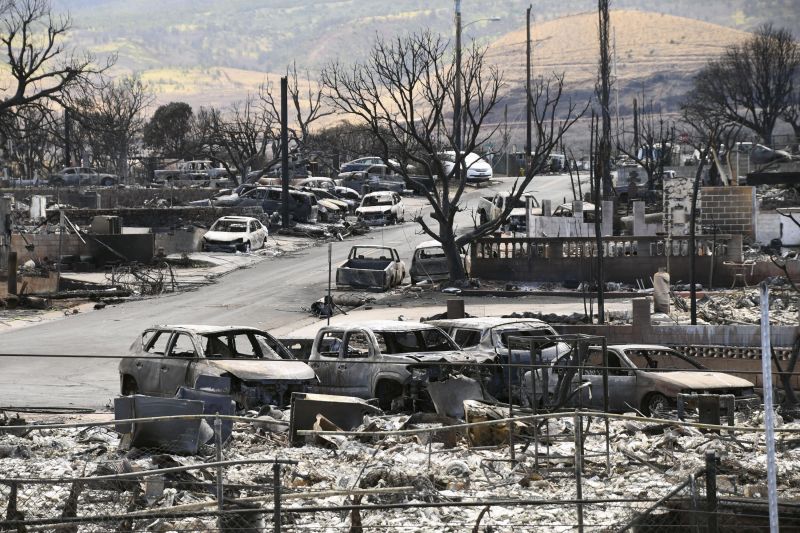
Earth's Temperature Surpasses Critical 1.5 Degrees Celsius Threshold

Recent data reveals that global warming has exceeded the critical 1.5 degrees Celsius mark, marking a significant milestone with profound implications for the planet. The urgency to address climate change is now more pressing than ever.
Record-Breaking Global Warming
In a historic turn of events, Earth's temperature has surpassed the alarming 1.5 degrees Celsius threshold over the last 12 months, setting a new record that underscores the escalating climate crisis. This critical milestone, as indicated by the latest data from Copernicus, signals a dire need for immediate action to mitigate the adverse effects of global warming.
Damage in Lahaina caused by deadly wildfires on the island of Maui in Hawaii on August 16, 2023.
The average temperature in the past year soared to 1.52 degrees higher than pre-industrial levels, with January registering a staggering 1.66 degrees above the historical average. These unprecedented temperature spikes are clear indicators of the rapid pace at which our planet is warming, highlighting the urgent need for decisive measures to curb further escalation.
Implications for the Paris Agreement
The Paris Agreement, a landmark accord signed by nations worldwide in 2015, aimed to keep global warming below 2 degrees Celsius, with a preferred target of 1.5 degrees. However, the recent data revealing the surpassing of the 1.5-degree threshold underscores the critical juncture at which our planet stands in relation to climate change.
While scientists emphasize the importance of sustained efforts to prevent multi-year warming trends above these limits, the current trajectory indicates a looming crisis that demands immediate attention. Matt Patterson, a leading expert in atmospheric physics, describes this record-breaking event as a 'significant milestone' that underscores the urgency of addressing climate change.
Urgent Call for Action
As global temperatures continue to rise, setting consecutive heat records both on land and at sea, the imperative for rapid and substantial reductions in greenhouse gas emissions becomes increasingly clear. The latest findings from Copernicus reveal that not only has 2023 been the hottest calendar year, but the trend has persisted into 2024, with January marking another record-breaking month.
Samantha Burgess, Deputy Director of Copernicus, emphasizes the critical role of greenhouse gas emissions in driving global temperature increases, asserting that immediate and drastic emission cuts are the only effective means to halt the escalating climate crisis. The convergence of human-induced emissions and natural climate patterns like El Niño has intensified the impact of extreme weather events, leading to devastating consequences across regions like Chile and California.














